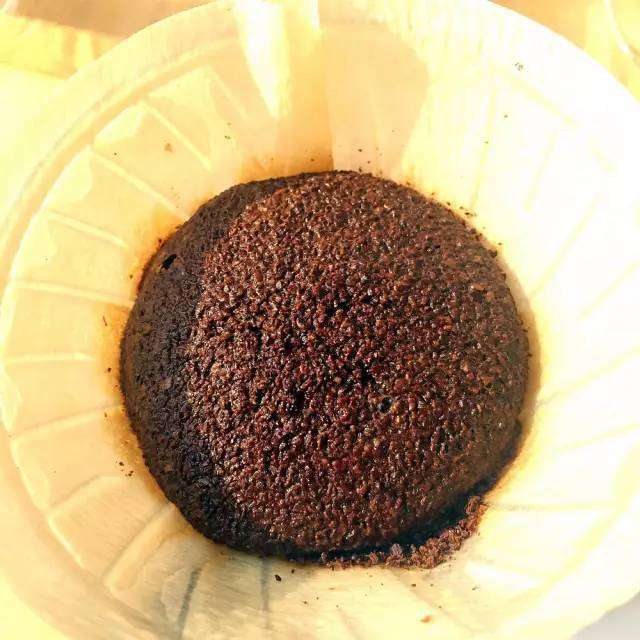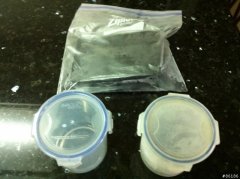Coffee preservation method | should coffee beans be put in the refrigerator or not? How to preserve the ground coffee powder

Professional coffee knowledge exchange more coffee bean information please follow the coffee workshop (Wechat official account cafe_style)
The most scientific guide for the purchase and preservation of coffee beans, see here! Guidelines for the preservation of coffee beans
According to the American International Coffee Association (NCA) website, the natural enemies of coffee beans (powder) are: humidity, temperature, light, oxygen. Therefore, when thinking about what to do with coffee beans, the key is how to avoid these four enemies!
Q1: the coffee bean ice refrigerator won't go bad? NO!
The question that most people wonder about is: "do you want to put coffee beans in the refrigerator or not?" Especially in humid and muggy Taiwan, many people tend to put all their food in the refrigerator to protect them from moisture and heat. in fact, not every kind of food is suitable for preservation in the refrigerator, especially coffee beans!
When we take the drink out of the refrigerator and leave it at room temperature, we can see that condensed water droplets appear outside the container. Similarly, if the opened coffee bean is stored in the refrigerator, its natural "hygroscopic" will not only absorb the odor of the nearby refrigerator and make the aroma of the coffee bean disappear, but also because it is repeatedly taken out from the refrigerator, the coffee bean will be covered with fine water droplets and the humidity will be greatly increased. On the contrary, it encourages the growth of mold.
But without the refrigerator, won't it go bad when the weather is muggy? Indeed, a high temperature environment will deteriorate the oil quality of coffee beans and lose their fresh aroma and flavor, so heat-dissipating appliances such as sunlight, refrigerators or ovens, and cardboard boxes are not good places to store coffee beans. only in a dry and cool place can you maintain the good quality of coffee beans.
Q2: you can't put it in the freezer. Can you put it in the freezer?
If you can ensure that the container of coffee beans is completely sealed and unopened, then it is possible to put it in a freezer. But don't forget that every time you open the refrigerator, you will let the coffee bean shine on the light, and it is also one of the enemies of the coffee bean. So the best advice is to store coffee beans in a freezer if you want to preserve them for a long time and won't use them for 14 days.
If you need to use coffee beans after two weeks, remember to put the remaining coffee beans back in the freezer before condensation (deicing) occurs to reduce the likelihood of spoilage.
Q3: will coffee powder be easier to preserve than coffee beans? NO!
In general, coffee beans can be preserved for about a year without being sealed. After exposure to air, it is best to eat up within 14 days to prevent moisture. In this way, how does oxygen affect the quality of coffee beans? Coffee beans will deteriorate because of oxidation, and the longer they are exposed to the air after baking, the less fresh the coffee beans will be, and the worse the flavor of the brewed coffee will be, not to mention the coffee powder that has been ground has a larger surface area in contact with the air. it's more likely to deteriorate.
In 1999, the American Fine Coffee Association (SCAA) publicly adopted the definition of "freshly roasted coffee": no matter how it is packaged, it must be brewed within seven days of roasting and immediately after grinding into powder. So, if you have bought a whole bag of coffee powder to go home, the best way is to finish drinking!
General arrangement of preservation tips for coffee beans
Sealed cans are filled:
Eliminate the possibility of damp coffee beans caused by oxygen
Buy in small quantities:
Roasted coffee beans, the longer the time, the easier it is to deteriorate, so it is best to drink it in a short time.
Cool and dry place:
To avoid deterioration caused by light exposure, one of the four natural enemies of coffee beans.
Coffee powder is ready to be ground and washed:
The powdered texture is not easy to preserve, so it is recommended to finish eating quickly after opening.
.
Important Notice :
前街咖啡 FrontStreet Coffee has moved to new addredd:
FrontStreet Coffee Address: 315,Donghua East Road,GuangZhou
Tel:020 38364473
- Prev

Frozen preservation of coffee beans and equipment how to keep bagged coffee really can't be put in the refrigerator?
Professional coffee knowledge exchange more coffee bean information please follow the coffee workshop (Wechat official account cafe_style) the most scientific coffee bean purchase and preservation guide, see here! Guidelines for the preservation of coffee beans I use the freezing method to take out the coffee beans to drink from the freezer, grind and drink them immediately, and pay attention to grinding and extracting the coffee beans before thawing and dampness.
- Next

How to lock good coffee flavor? How long can the coffee be brewed and preserved?
Professional coffee knowledge exchange more coffee bean information please follow the coffee workshop (Wechat official account cafe_style) the most scientific coffee bean purchase and preservation guide, see here! Coffee beans preservation guidelines how to lock good coffee flavor normal preservation situation raw beans: can be stored for one year roasted coffee beans: the best taste period of 314 days, a month can be more than three months to think about it
Related
- Beginners will see the "Coffee pull flower" guide!
- What is the difference between ice blog purified milk and ordinary milk coffee?
- Why is the Philippines the largest producer of crops in Liberia?
- For coffee extraction, should the fine powder be retained?
- How does extracted espresso fill pressed powder? How much strength does it take to press the powder?
- How to make jasmine cold extract coffee? Is the jasmine + latte good?
- Will this little toy really make the coffee taste better? How does Lily Drip affect coffee extraction?
- Will the action of slapping the filter cup also affect coffee extraction?
- What's the difference between powder-to-water ratio and powder-to-liquid ratio?
- What is the Ethiopian local species? What does it have to do with Heirloom native species?

